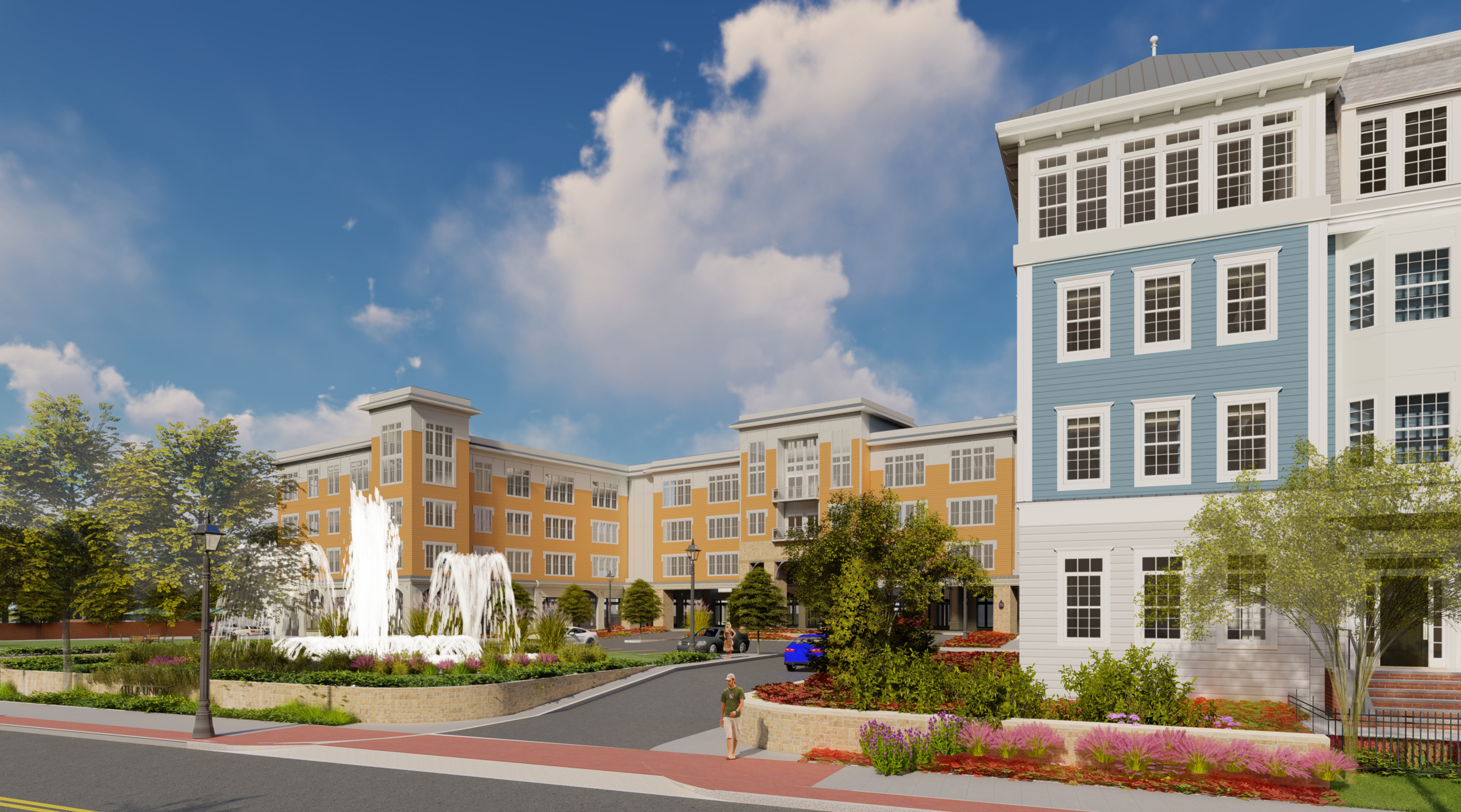The coronavirus pandemic has forced many young Long Islanders to delay major life decisions and has made leaving for more affordable areas even more enticing, a recent survey found. High housing prices and cost-of-living expenses continue to push young people away from the area, researchers say.
But building more mixed-use developments and co-living spaces could actually convince the younger generations to stay on Long Island — as well as support small businesses and help to address the area’s segregated history, according to a panel discussion last month.
At the “nextLI Presents: COVID-19 & Long Island’s Next Generation” panel, Jimmy Coughlan, a development analyst at Long Island’s TRITEC Real Estate Company, said it was “imperative” to continue to invest in mixed-use complexes, which combine housing with commercial space.
Coughlan, who lives in a mixed-use development, said he and his fiancée are able to commute, shop and live comfortably on Long Island with a single car.
“I think I’m sort of a prototype for what young Long Islanders are looking for,” he said.
The flight of young adults from Long Island was a serious issue long before the coronavirus pandemic struck. According to a YouGov/nextLI survey, 67 percent of 18- to 34-year-olds plan to move for more affordable areas.
A more recent survey focusing on the pandemic found that one in four of the same demographic had put major life events — like homeownership, starting a family or switching jobs — on hold. Millennials and Generation Zers were also more likely than any other age group to consider moving to more affordable areas.
Nicole Ki, a 23-year-old Hicksville native and data intern with nextLI, said that “high taxes and housing costs are stumping mine and many young Long Islanders’ ability to have a larger stake in this region.”
“Our current housing system is unaffordable, outdated and does not have the inventory for diverse living options the next generation needs,” she said.
Dan Lloyd, president of Minority Millennials, said Black and brown Millennials were especially hit hard by the pandemic and by the 2009 recession before that.
“We’ve kind of been forced to hold back on this idea of the American dream,” he said.
Nassau County legislator Josh Lafazan freely admits he still lives with his parents, noting that many other Millennials share his struggle to find acceptable and affordable housing.
Lafazan, a 26-year-old who became Nassau County’s youngest legislator when elected in 2017, said he was encouraged by the activism of Millennials and those in Generation Z. Such a strong desire for change could help push not just national politicians, but local stakeholders in village, town and county governments to take housing concerns more seriously.
“While it’s exciting to focus on national elections, local elections and local legislators are where the work actually gets done,” Lafazan said.
Both Ki and Coughlan said many Millennials and Generation Zers prefer apartments and condos over traditional single-family homes.
“If we want to retain those people on Long Island, I think we need to provide the kind of housing stock they want to see,” Coughlan said.
Young Long Islanders crave walkable, pedestrian-friendly towns with independent small businesses and diverse residents, and many are leaving for places like New York City that offer such amenities, Lloyd added.
Coughlan pointed to TRITEC’s New Village complex in Patchogue as an example of what mixed-use development can provide. According to Coughlan, the revitalization of downtown Patchogue has produced more than $700 million in economic benefits.
“The foot traffic that those apartment complexes generate for the small businesses is really vital for their survival,” he added.
But mixed-use developments can also help address Long Island’s dark history of racial and economic segregation.
“It’s no secret that for a long time, Long Island has been one of the most economical and racially segregated areas,” Coughlan said. “Bringing in those apartments and providing housing for not only people from all races but all economic spectrums allows people to finally, from all backgrounds, get off at the same train station, shop at the same stores, and live amongst each other. I think it’s a major step in the right direction.”
Developers are also exploring other locations for mixed-use investment. For example, revitalizing outdated office parks could give residents an affordable place to live with easy access to highways and train stations.
Unfortunately, financial institutions consistently value profit over community benefits, Coughlan said, forcing developers to price new developments outside the reach of some younger Long Islanders.
He credited industrial development agencies at the town and county level for incentivizing and assisting developers to boost workforce housing stock. Other initiatives like social impact funds can also help push financial institutions to invest more responsibly.
Social impact funds are part of a grassroots movement to stop making profit the primary focus of development funding, Coughlan said.
According to Lloyd, projects like “smart housing,” in which smaller plots of land are developed specifically to address affordability, could be another solution. Altering zoning laws could also spur more development.
Developers are also working on so-called micro-apartment projects, where residents live in smaller units but have large co-living spaces, according to Nassau County Legislator Josh Lafazan. The “Nassau Hub” project will include micro-apartment living spaces in its redesign of the area surrounding NYCB Live’s Nassau Coliseum, Lafazan said.
Ultimately, Coughlan said, Long Island’s lack of affordable places to live comes down to a simple issue of supply and demand. As the housing stock increases, rents will naturally begin to fall.
“The rents are really high right now because a lot of people want to live in these apartments and there just aren’t enough of them,” he said.
To watch the full event visit: https://projects.newsday.com/long-island/nextli-presents-covid-19-long-islands-next-generation/

